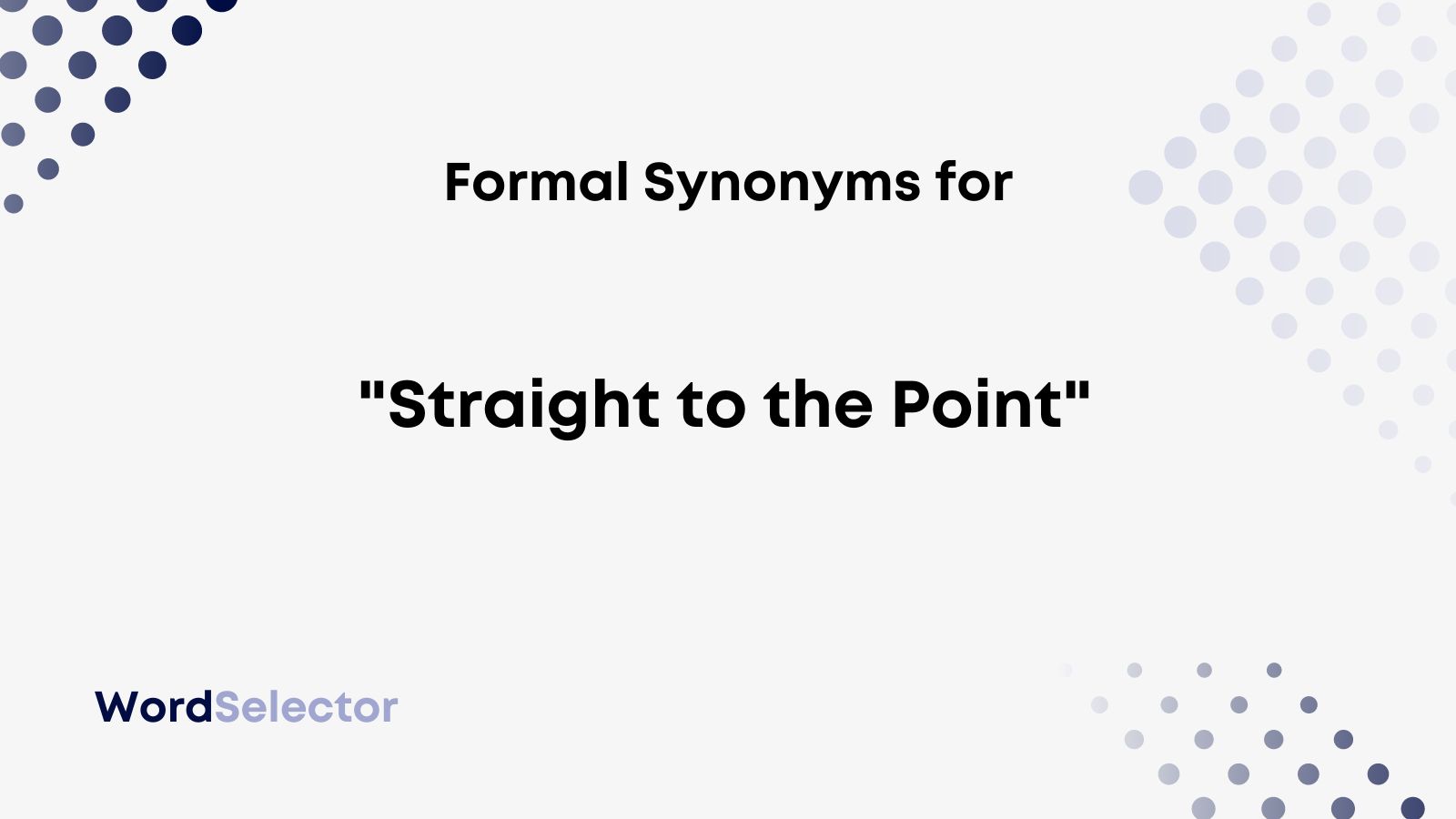Do you want to know the best ways to tell someone to get to the point quickly?
Maybe you’re concerned that “straight to the point” isn’t the best phrase to use in this context.
Well, fear not! This article will help you to sound more formal and sincere.
We’ve gathered a list of synonyms to teach you how to say “straight to the point” professionally.
Other Ways to Say “Straight to the Point”
- Concise
- Explicit
- Unambiguous
- Matter-of-fact
- Precise
- Direct
- Clear-cut
- Exacting
- Unembellished
- Blunt
- Lucid
- Plain-spoken
- Compressed
- Transparent
- Crisp
KEY TAKEAWAYS
- “Straight to the point” is correct and shows that someone tries to be direct and clear with their speeches or writing.
- “Concise” is great to use as a formal synonym in most written cases.
- You can also use “explicit” to sound formal if you want something a bit more interesting.
So, keep reading to learn how to say “straight to the point” in an email. We’ve explained more about the best two alternatives to give you a better understanding of them.
You can also read the final heading to learn whether “straight to the point” is correct. Then, you’ll know whether you can include it in your own writing or if it’s something you should avoid.
Concise
We recommend starting with “concise” as a professional way to say “straight to the point.”
When someone (or something) is concise, it means it gets to the point directly and doesn’t faff around with irrelevant information.
So, you can use this when something isn’t wordy and makes a lot of sense.
It works well when emailing employees. After all, it will encourage them to be quick and get to the point quickly, as any extra or excessive information included is simply wasteful.
Feel free to review these email samples to learn a bit more about using it:
Dear Alex,
I’d like you to be as concise as possible when writing this presentation.
We do not have time to waste on irrelevant details, I’m afraid.
All the best,
Max Hunter
Dear Russell,
Please try to remain concise while going through the meetings.
I’d appreciate it if you could get them all done before the end of the day.
Thank you so much,
Cherie Carpenter
Explicit
You can also write “matter-of-fact” as another way to say “straight to the point.”
Generally, this works well as a more interesting alternative. It’s not often you get to include something like this in your writing, so it can be a fun way to mix things up.
It’s professional and direct. So, it wastes no time explaining to someone that you’re trying to get your point across as quickly as possible.
Try using it when contacting a client. It’s an excellent opportunity for you to share information quickly without being wordy or wasteful.
You can also check out this example to learn more about how it works:
Dear Mr. Murphy,
I’m being as explicit with my explanation as I can be to make it easier for you.
Please review the attachment to learn more about what I mean.
Best wishes,
Shauna Whitehall
Also, you can use this phrase when writing a resume. If you’re quite good at keeping direct and getting to the point quickly, a phrase like this will go a long way.
So, you may want to review this example to learn more about it:
I’m explicit in my clarifications. I’ll always do my best to include only the most relevant information.
Is It Correct to Say “Straight to the Point”?
It is correct to say “straight to the point.”
However, it’s a bit unprofessional. Since it’s a more informal phrase, it’s not something you would often see in email situations.
Instead, you might see something like this in a text message or a more casual scenario.
You can refer to the following example to see how to use “straight to the point” in a sentence:
We need to get straight to the point when we arrive. Otherwise, they’re not going to want to listen to us.
Before you use the phrase, though, you need to know a few things!
First, you need to understand the hyphen rules. You should not hyphenate “straight to the point” if used as an idiom.
For instance:
- Correct: Please get straight to the point.
- Incorrect: You must get straight-to-the-point.
However, you can hyphenate it if it’s a compound adjective. This only applies when it comes before a noun, though.
For example:
- Correct: He’s got a straight-to-the-point approach.
- Incorrect: We are not going with the straight to the point method.
Second, you cannot use the following phrase:
- Incorrect: Direct to the point.
“Direct” and “straight” are not synonymous in this instance. So, it’s best to avoid confusing the two.
Finally, you should bookmark this page! Then, you can remind yourself of the best formal synonyms for “straight to the point” to help you sound more professional.

